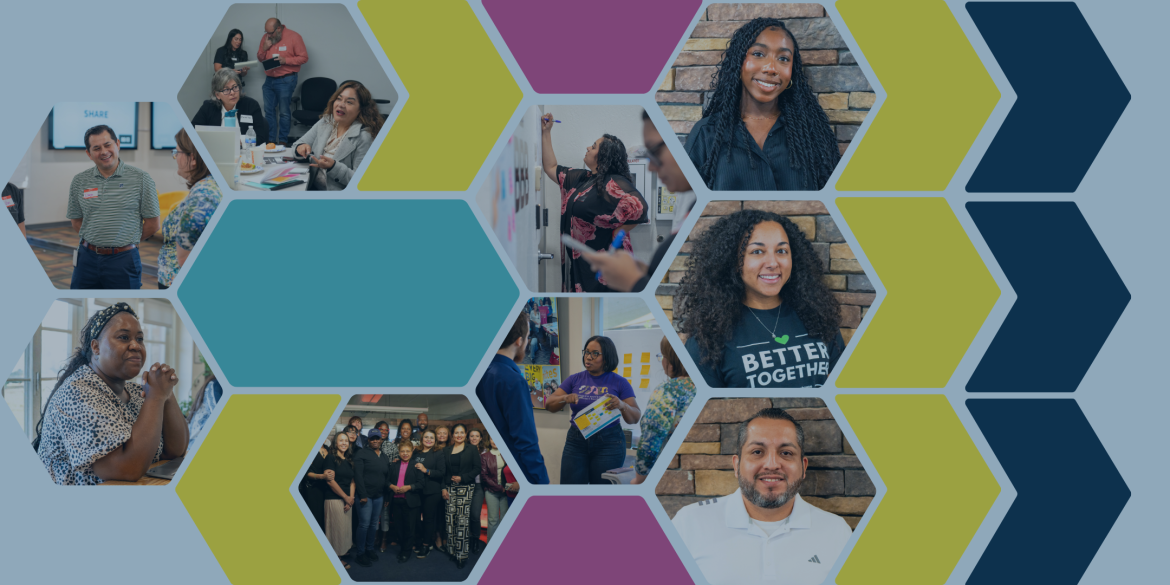To learn more about one of SEED SPOT’s alumni who is sparking brighter futures through innovative education & entrepreneurial learning, visit Celebrate Autism’s website.
Other alumni working with and for those with special needs: Agua Sac, Paper Clouds Apparel, Pal Experiences, The H.E.A.R.T. Center.
Hand picked by Tabitha, our Director of Development. For more of Tabitha’s reads, click HERE.
For the original article, click HERE.
—
#Leadership: 50,000 People With Autism Need Jobs This Year. Here’s Why You Should Hire Them…There is a Growing Number of Adults on the #Autism Spectrum Who Want to Enter the #Workforce but Can’t. Meet the Entrepreneurs Trying to Solve the Challenge.
Parkland is a remarkably unremarkable South Florida town. That bland name is perfect. Parkland’s per-capita income–just about $45,000–is almost exactly the same as that of the entire United States. The place is all strip malls and subdivisions, pedestrian-free sidewalks, and Bermuda grass creeping across drained marshland. On the city’s west side, a 60-year-old levee restrains the Everglades, dividing swamp from suburbia.
Perhaps the most notable thing in Parkland is the remarkably average-looking car wash adjacent to the BJ’s Wholesale Club and down the street from Starbucks. Opened in 2013 to clean the community’s Camrys and Explorers, it’s called Rising Tide. The name alludes to one of its missions: to create jobs for people with autism-spectrum disorders.
Andrew D’Eri has worked at Rising Tide nearly from the start. “I’m saving money for a trip to Orlando and a trip to New York,” D’Eri says one afternoon when I stop by. Someone up in the nickel-colored sky seems to be repeatedly wringing out a sponge–a terrible day for washing cars, a great one to talk to staff. But D’Eri’s face is all sunshine as he explains to me that “Universal is much better than Disney. It’s all those virtual rides and the 3-D rides.” An affable 24-year-old who loves Star Trek, he also enjoys “using the iPad to look up words about science in the dictionary.” When I ask if he likes his work, he pauses and then answers: “I feel good.”
His straightforward enthusiasm recalls one of the most striking quotes in Working–Studs Terkel’s seminal 1974 collection of oral histories from dozens of workers in diverse industries–which is from editor Nora Watson: “Most of us are looking for a calling, not a job. Most of us have jobs that are too small for our spirit. Jobs are not big enough for people.”
This is the first job D’Eri has ever had. He owes it entirely to Rising Tide’s proprietors–his brother, Tom, and his father, John, a serial entrepreneur and magisterial raconteur. When we first spoke on the phone, John D’Eri responded to my initial question–about Rising Tide’s inspirations–with a passionate 47-minute discourse. “Every parent worries about their children and what will become of them once they pass,” he said. “As I was starting to review what Andrew’s prospects were and what his opportunities would be, I realized he had none. Really, none!”
Neither Tom nor John believed that Andrew’s need for a job justified a business’s existence. Rising Tide had to be “more than for Andrew,” John says. It had to be “a business that could tow as many along as possible. And it’s not a charity. It has to be a business. The business has to stand on its own.”
The D’Eris belong to a cohort of entrepreneurs who believe they may be able to address a largely unnoticed crisis: burgeoning unemployment among the fast-growing autistic-adult population. The answer isn’t love–it can’t be, because not everybody has an Andrew as touchstone or inspiration. Rather, the suggested solution is profit. “Hopefully our success will spark the broader business community to consider employing people with disabilities as a competitive advantage,” says Tom D’Eri. “This just makes business sense.”
People in the autism world often say, “When you’ve met one person with autism, you’ve met one person with autism.” It’s a slightly defensive way of articulating an important truth: Autism isn’t monolithic.
An early cultural encounter with autism, Rain Man, featured Raymond Babbitt, Dustin Hoffman’s Oscar- winning portrayal of a human super-calculator. This image of the autistic man as math and tech whiz–and in pop culture, it’s almost always a man–has been reinforced by more recent depictions of people with autism-spectrum disorders. There’s Christopher Boone, the winsome protagonist in the acclaimed stage adaptation of the novel The Curious Incident of the Dog in the Night-Time. There’s Spencer Reid, the genius autodidact-turned-investigator played by Matthew Gray Gubler on CBS’s Criminal Minds. And there’s HBO’s Silicon Valley, which one of its stars, T.J. Miller, described to Mashable as “Asperger’s Entourage.”
The prevalence of such characters reflects the prevalence of people with autism-spectrum disorders in broader society: They’re there. We know more and more of them, and often we hold them in great affection. We understand them better than we used to, though we still don’t fully get how their brains work. (See sidebar, page 39.) Nor have we figured out how to integrate them into our workplaces and economy.
Every year, at least 50,000 individuals with autism will enter adulthood, according to the advocacy organization Autism Speaks. The condition’s manifestations vary as widely as human personality, hence the umbrella term autism- spectrum disorder. People with Asperger syndrome, the mildest form, may show few perceptible symptoms beyond slight social awkwardness, while those at the other end of the spectrum may have no verbal skills, severe sensory sensitivity, and tendencies toward self-injurious behavior. The professional prospects of this latter group are grim. Ninety percent of autistic adults are unemployed or underemployed, a rate unlikely to improve as the autistic-adult population grows. According to the Centers for Disease Control and Prevention, 1 of every 150 children had an autism-spectrum disorder in 2000; the latest rate is 1 in 68, a rise that cannot be explained by better diagnosis alone.
No census of autistic adults has been done in the U.S., though the best guesstimates suggest that there are more than three million. Health and social services for adults on the spectrum cost taxpayers nearly $200 billion a year. That figure could double by 2025. Government agencies and nonprofits working with the autistic population used to focus almost exclusively on kids and teens. That has changed over the past decade, “as that most recent, largest wave of children aged out of school,” says David Kearon, the director of adult services at Autism Speaks. “Everything that you and I take for granted as part of our adult life comes as a challenge to many families–housing, support for things they need to live independently, employment.”
That last challenge–employment–is most likely to be met by America’s entrepreneurs. A massive tech corporation may hire the highest-functioning autistic people, but it’s not yet evident that a small program in a big company can move the financial needle enough to make a strong business case beyond a few sweet paragraphs in a social-responsibility report. The businesses in this story have already intuited that widespread change will come not from the pity that prompts a person to buy an autistic man’s mousetrap or even from empathy for a cause.
“Small business is the place where we can be accommodating,” says John Elder Robison, who sits on the Interagency Autism Coordinating Committee, which advises the federal government on autism-related research. He has self-accommodated at his company, JE Robison Service in Springfield, Massachusetts, which repairs luxury cars. “Because I’m autistic, I’m compelled to know everything about the minutiae of Rolls-Royce and Bentley cars,” he says. “People send us service work from all over the country because we know a lot about them, and the reason we know a lot about them is that I’m autistic and it’s an autistic special interest of mine. It’s a significant competitive advantage.”
Robison believes small businesses like his hold keys to the future for thousands of people on the spectrum, including the interns who pass through his shop (they’re paid $10 to $12 an hour) and his son, who works there too. “It’s the little businesses,” he says, “that have the flexibility to see the opportunity in people who are different.” You’ll find such businesses all across North America. Inc. asked five to share their experiences employing autistic people and the lessons they’ve learned on the journey.




